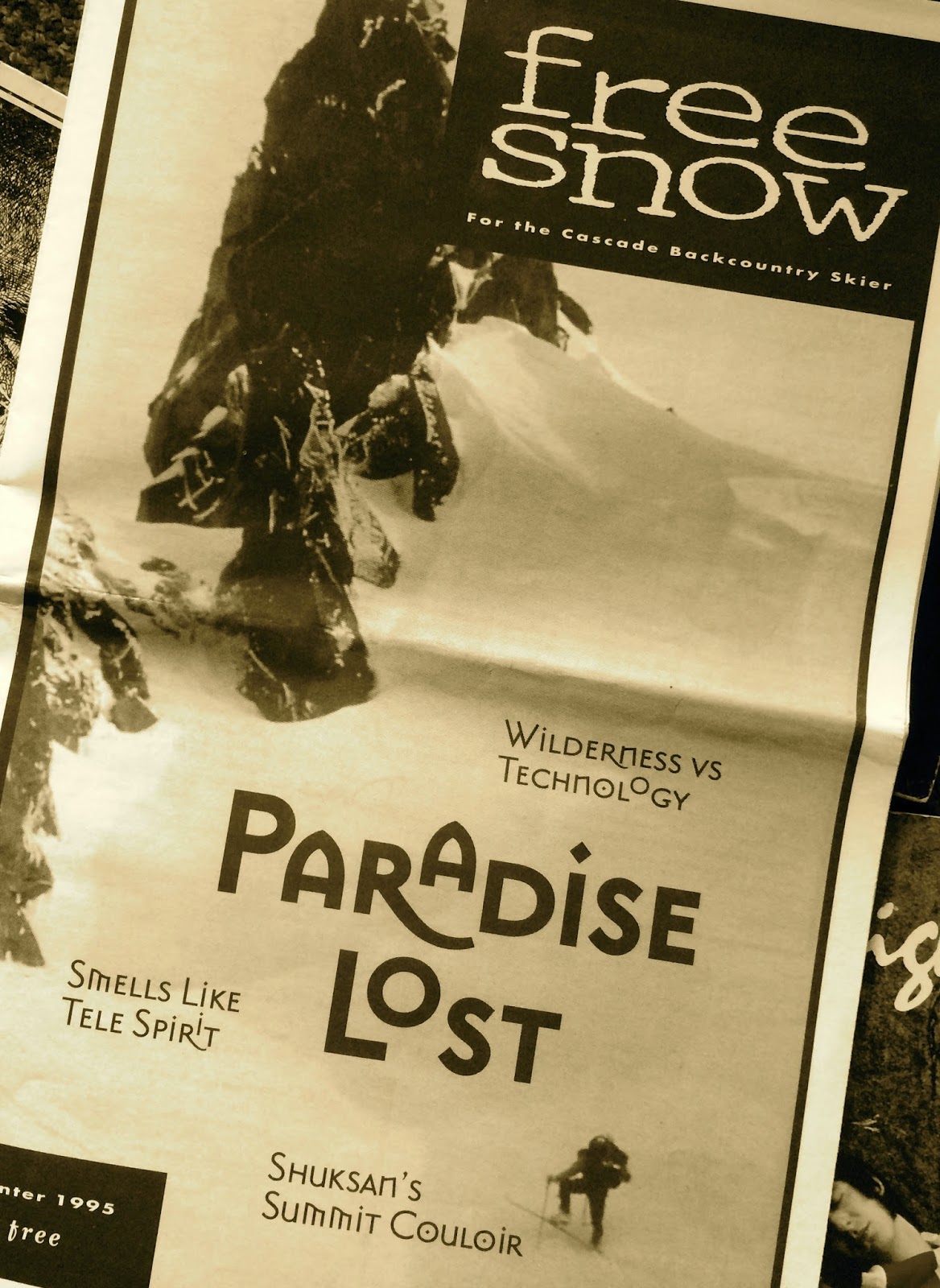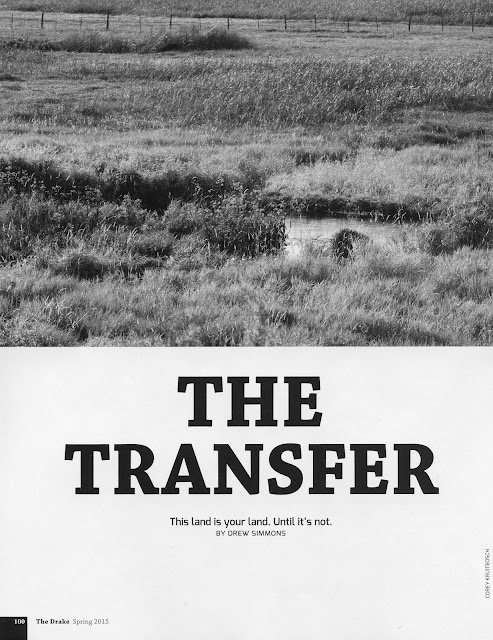Wilderness vs. Technology, circa 1995
Living in Seattle in the fall of 1995, I heard a story from
a climbing guide buddy about a recent almost-rescue in North Cascades National Park. A group of climbers had ended up stranded and hunkered down on the east ridge of Forbidden Peak, and to remedy the
situation, they did something that had never been done before. They made the
first ever cellular phone call that launched a search in the Park.
 Despite the sophistication of the communication device, the "rescue" ended up being a bit of a cluster. Basic advice was given by the rangers. Weather got worse. No location was established. Communication was lost. A search party headed out and found the group. The group denied ever actually asking to be rescued.
Despite the sophistication of the communication device, the "rescue" ended up being a bit of a cluster. Basic advice was given by the rangers. Weather got worse. No location was established. Communication was lost. A search party headed out and found the group. The group denied ever actually asking to be rescued.
It was a big deal at the time, to me anyway. Cell phones
were things that you saw in the movies, or in the coffeeshops surrounding the
Microsoft campus. Not skiing.
So I penned a piece
for the PNW's neighborhood backcountry rag, free snow,
that put the idea of wilderness versus technology out there.
Waking up this morning to see the news of $34 million worth of high-speed optics
being planned for Yellowstone and Grand Teton National Park (LINK), and seeing live action Facebook posts from
friends currently enjoying the selfie-friendly backdrops of Yosemite, I dug out that old issue.
Close to nearly two decades old, words in print still really hit
home. Here are a few lines culled from the piece:
You would think nothing of driving to the mountains and
back in a day, and the cost of that would be a full year’s food budget for an
Ethiopian. Say you take a trip to Nepal; with all the costs there you’re
looking at the GNP for a whole village. If that’s not decadent, I don’t know
what is. But our technology helps us live cleaner, more efficiently. The
important thing is, we’re urban people, most of us have jobs and goals, and we
use the concept of wilderness to “recreate.” It’s important to have that, and I
think technology helps us get that.
Rainer Burgdorfer
Writer, Author, Skier
1995
A lot of the things are and will be be happening. We can’t
just drag our feet and say we can’t address this. Like the GPS device – it’s
out there now, and it’s already being used to do trail work. It’s all along a
continuum, there’s no stopping any of us from taking the path of least
resistance.You can look back with a sigh and how things were in the old days,
and you can appreciate that. All we can do is just try and appreciate what
peole in an earlier day went through, and had the enegery and interest to do,
compared to what we do today. Right now, things are a whole lot easier and not
many people realize that.
Kelly Bush
Park Ranger, North Cascades national park
1995
People are expecting more from a wilderness experience. It used to be a wilderness experience to go to Mt. Rainier from Seattle. Now, if you're not doing Liberty Ridge, you're not there.
Paul Baugher, director
Northwest Avalanche Institute
1995
I was looking at a new magazine, Rocky Mountain Magazine.
It’s sort of an Outside-type publication. I was looking at the ads that were in
it – Jeep Cherokee, Magellan GPS systems, scotch. Who are the consumers of the
wilderness now? Are they looking for a wilderness experience to go with their
scotch and their Jeep Cherokee? It’s almost got to the point where it’s
elistist in a way – the technology, but also the whole concept of wilderness.
You think of the extreme case, Aspen, where an average home sells for $1.4
million for the opportunity to live in this neat place where normal people
can’t afford to live anymore.
Eric Simonson
Senior Guide, RMI & NAI Instructor
1995
We take a lot of raft trips in southern Utah, where the only
way out is 60 miles downriver. In that situation, having a cellular phone would
be nice in terms of an emergency, but it’s not something I’d let other peole
know was there. Part of the wilderness aspect is the danger and psychological
aspect of being out there. If I was a commercial operation, and had to look at
liability concerns, the money and having 40 people on the trip, I’d bring one.
Keep it in an ammo can or something. If it was just me and my friends though,
I’d much rather bring along a nurse.
Ken Keeley
General Manager, Voile
1995
We’re in a society where more is better. The more trinkets
you have for your backcountry trips keeps old men like me in business, and
keeps more makers making more gear to ease the backcountry experience. But is
the backcountry supposed to be hard? Or is it supposed to be easy?
Clair Yost
Yostmark Mountain Equipment
1995


I agree. 100%. So Much!
ReplyDeleteBut then...
Having a cell meant that first responders reached me within two hours of the call being placed, not four. My buddy was able to stay with me the whole time. It was nicer.
Am I a hypocrite?